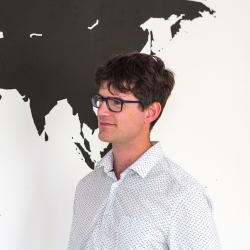The Spritely Institute's Mission
The purpose of The Spritely Networked Communities Institute is to advance networked user freedom. People deserve the right to communicate and have communication systems which respect their agency and autonomy. Communities deserve the right to organize, govern, and protect and enrich their members. These goals are natural outgrowths of applying the principles of fundamental human rights to networked systems.
Achieving these goals requires dedicated effort. The Spritely Institute stewards the standardization and base implementation for decentralized networked communities; promotes user freedom and agency of participants on the network; develops the relevant technologies as free, libre, and open source software; and facilitates the framing and narrative of network freedom.
Technical Values and Design Goals
The following values and goals guide Spritely's work and underpin the design of our tech:
- Secure collaboration: Spritely's work is to enable safe cooperation between individuals and communities in an unsafe world. We are building tools to make this possible.
- Networks of consent: The cooperation mechanism we use is capability security, which allows for consent-granted mechanisms which are intentional, granted, contextual, accountable, and revocable. Rather than positioning trust as all-or-nothing or advocating for "zero trust" environments, we consider trust to be something fundamental to cooperation. We want individuals and communities to be able to build trust to collaborate cooperatively together.
- Healthy communities: We must build tech that allows communities to self-govern according to their needs, which vary widely from community to community. We may not know all of these needs or mechanisms required for all communities in advance, but we should have the building blocks so communities can easily put them in place.
- User empowerment and fostering agency: We believe in users having the freedom to communicate, but also to be able to live healthy lives protected from dangerous or bad interactions. We want users to be able to live the lives they want to live, as agents in the system, to the degree that it does not harm the agency of other users in the system. Maximizing agency and minimizing subjection, not just for you and me, but for everyone, is thus is a foundation.
- Contextual communication: There is no "global town square", and we are deeply concerned about context collapse. Communication and collaboration should happen from contextual flows.
- Decentralized is the default: We are building technology foundations on top of which then the rest of our user-facing technology is built. These foundations change the game: instead of peer-to-peer, decentralized, secure tech being the realm of experts, it's the default output of software built on top of our tech.
- Participatory, gatekeeper-free technology: Everyone should be able to participate in the tech, without gatekeepers. This means we have a high bar for our tech being possible for individuals to meaningfully run and for a wide variety of participants to be able to cooperate on the network at once.
- We should not pretend we can prevent what we cannot: Much harm is caused by giving people the impression that we provide features and guarantees that we cannot provide. We should be clear about the limitations of our architecture, because if we don't, users may believe they are operating with safety mechanisms which they do not have, and may thus be hurt in ways they do not expect.
- Contribute to the commons: We are a research institution, and everything we build is free and open source software, user-freedom empowering tech and documentation. This also informs our choice to run the Spritely Institute, organizationally, as a nonprofit building technology for the public good.
- Fun is a revolutionary act: The reason technology tends to succeed is that people enjoy using it and get excited about it. We care deeply about human rights and activism. This is not in opposition to building tech and a community environment that fosters a sense of fun; planned carefully, fun is at the core of getting people to understand and adopt any technology we make.
Meet the Team

Christine has devoted her life to advancing user freedom. Realizing that the federated social web was fractured by a variety of incompatible protocols, she co-authored and shepherded ActivityPub's standardization. She has also contributed to many other free and open source projects, including co-founding MediaGoblin.
Christine established the open source Spritely Project to solve known problems in existing centralized and decentralized social media platforms and to re-imagine the way we build networked applications - work that now continues here at the institute under her guidance as Executive Director.

David Thompson is a software engineer and free and open source software advocate who enjoys writing software at every level of the stack. Dave is one of Spritely's earliest engineers and today serves as Spritely's CTO, leading Spritely's engineering team, overseeing Spritely's architecture, and getting in plenty of Spritely's core code himself.
David is a former DevOps engineer and full-stack web developer for Vista Higher Learning where he worked on everything from product feature implementation to production infrastructure automation. He is also a former web developer for the Free Software Foundation, has made numerous contributions to free software projects such as Guile and Guix, and has built his own game development and web development tools in Scheme.

Jessica is co-author and co-editor of the ActivityPub specification as well as being an active contributor to MediaGoblin and many other open source software and open standards for the last decade, working on everything from decentralized social media architecture to compilers.
Today Jessica is the lead developer of Spritely Goblins (or as we like to say, Jessica is the "Enchantress of the Goblin Realm"), continuing and building upon the early foundations laid by Christine. Jessica is also the primary author of the OCapN specification documents, the protocols of which power Spritely Goblins' distributed networked capability architecture.

Andy Wingo of Igalia consulting is working with the Institute to provide technical leadership on our Guile on WASM project.
“At Igalia, we have long loved both Guile and WebAssembly. Now thanks to Spritely’s vision we are delighted to be able to combine these efforts to bring a secure, capabilities-based Scheme to the web.” -- Andy Wingo

Juli Sims is Integration Engineer at the Spritely Institute where she weaves Spritely's various components into a coherent whole, such as by making Goblins run on Hoot. Juli also writes, beautifies, and edits documentation; and simply "spends a lot of time writing and staring at Spritely code." Outside of work, Juli protects those under her care by challenging ne'er-do-wells to sword duels in the woods. When she is not writing code or swordfighting, Juli can be found drinking coffee.
Board of Directors

Karen M. Sandler is the executive director of the Software Freedom Conservancy. Karen is known as a cyborg lawyer for her advocacy for free software, particularly in relation to the software on medical devices. She was executive director of the GNOME Foundation and general counsel of the Software Freedom Law Center. Karen co-organizes Outreachy, the award-winning outreach program for women globally and for people of color who are underrepresented in US tech. Karen is a recipient of the O’Reilly Open Source Award and cohost of the oggcast Free as in Freedom.

Deb is an experienced non-profit professional and passionate open source community builder who has worked at the Open Source Initiative, Software Freedom Conservancy and the Open Invention Network. She is also a founding organizer of the Seattle GNU/Linux Conference, an annual event dedicated to surfacing new voices and welcoming new people to the free software community.

Alex Handy is Chairman of the Board for the Museum of Art and Digital Entertainment (The MADE), which he founded 2010 after finding a parcel of unreleased Atari and Colecovision games. A veteran technology journalist, Alex started out covering the release of the first iMac. His writing has appeared in Wired, the Atlanta Journal Constitution, Computer Gaming World, and many other publications.
History
Spritely began as research project by Christine Lemmer-Webber to determine the future of decentralized social networks following Christine's experiences contributing to the popular ActivityPub standard. In finding that the object capability security community had the answers to most of the problems identified, Christine began speaking to Randy Farmer, who has been shaping networked community architecture for decades and who co-founded Electric Communities which pioneered much of the technology Spritely has been built upon. Christine and Randy decided to co-found the Spritely Networked Communities Institute, bridging Randy's long history of research with Christine's new technology. Jessica Tallon, who had previously worked with Christine on standardizing ActivityPub, joined as the first major developer using and extending Goblins, Spritely's distributed programming environment. Today, Spritely continues to develop, innovate, and research the future of networked community architecture.
Support for the Spritely Institute
If you're interested in supporting Spritely directly, see our donate page (consider becoming a recurring supporter)!
Spritely is also supported by a number of generous grants and organizational partnerships; see our Organizational Partners page for more information!